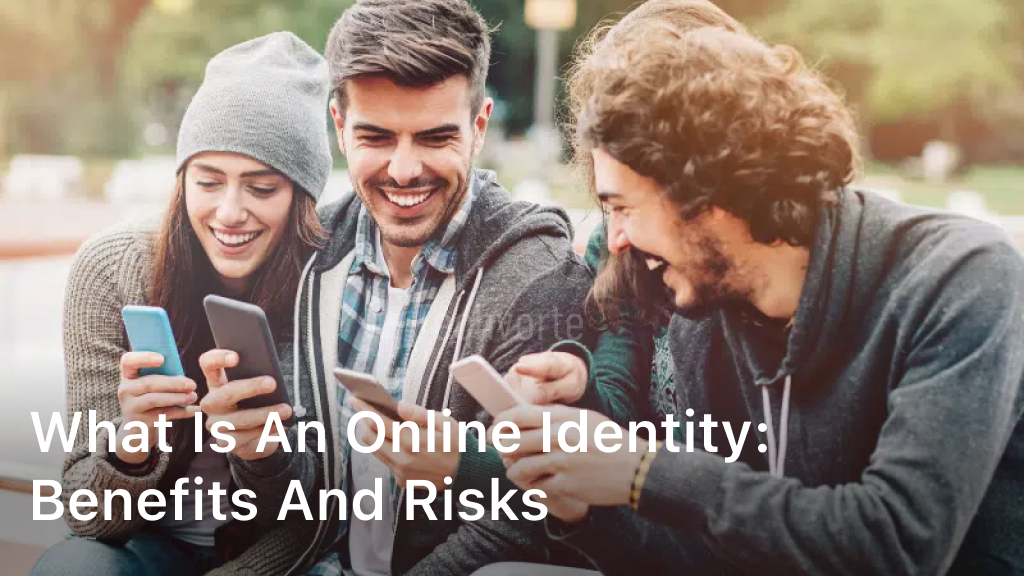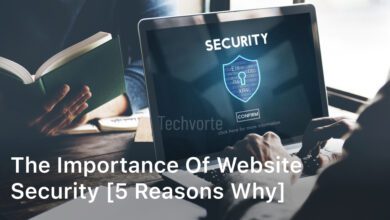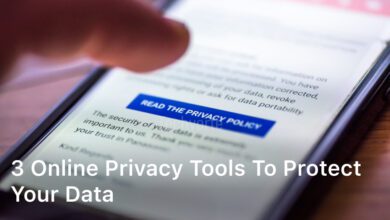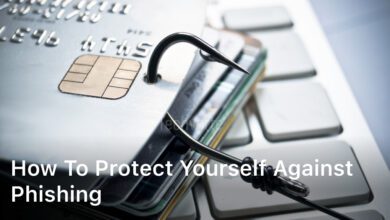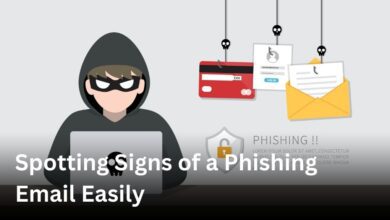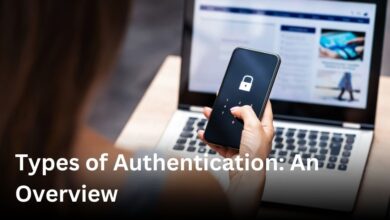Hi again Tech Vorte readers! In today’s digital world, what we do online stays with us. This is our digital footprint.
It includes everything we make, trade or use online.
This makes up our online identity, how others see us online.
Understanding online identity is key. It affects what others think of us and our lives, including our jobs.
Things like our social media profiles and what we do online matter.
They show who we are online and why it’s important to watch what we share.
Uncovering the Essence of Online Identity
In today’s world, our online identity is a big part of us. It shows who we are and how others see us.
Our online identity is made up of what we share, create and do online.
It includes our social media, what we do online, and info about us on the web.
What is Online Identity?
Our online identity is tied to who we are in real life. It draws upon every digital mark we make online.
That means our social media posts, blogs, comments online, things we buy and where we go online.
Why Online Identity Matters
Now more than ever, our online identity is key.
It affects how we’re seen in personal and work life.
It also shapes our job chances and what opportunities we have. Managing it can help us brand ourselves well, keep a good reputation, and stay safe from online dangers.
In a world filled with social media and online info, our online actions matter a lot.
It’s vital to control how others see us, keep our privacy, and maintain a positive presence online.
The Footprints We Leave Behind

In today’s digital age, our online activities shape our digital footprint.
This footprint shows up in many ways, defining who we are online.
Social Media Profiles
Platforms like Facebook and Twitter are key parts of us online.
What we post and who we connect with matters a lot.
These profiles show our true selves, bridging to our real life.
Anyone can see them, even potential bosses.
Online Activities and Interactions
Our actions online, like our history and comments, stay with us.
Every time you visit a site or buy something online, data is left behind.
This data forms a picture of who you are online.
Publicly Available Information
What’s out there about us counts too.
Things like county records and professional info are part of it.
Even things others post can influence our online space.
Online Reputation Management
Nowadays, it’s vital to manage your online reputation.
This helps keep a good image on the internet and improves personal branding.
To do this, you need to watch your online presence closely.
Make sure all the content tied to your name shows you in a positive light.
Monitoring Your Online Presence
It’s essential to keep a close eye on how you appear online.
This means searching for your name often and seeing what’s said about you on social media.
It also involves setting up alerts.
This keeps you in the know about any new mentions.
By being proactive, you can quickly fix any errors or handle issues before they become big problems.
Curating Your Digital Footprint
Besides watching your digital presence, you can also shape it.
Actively choosing what you share and who sees it is part of this.
You should also aim to remove or correct any information that doesn’t reflect well on you.
Managing your online content helps keep your personal and professional image as you want it.
Online Identity: Building a Positive Online Identity
In today’s world, it’s key to build a good online image.
This helps boost your personal brand and reputation.
Because so many people use social media and the internet, how you present yourself online matters a lot.
By choosing what to share online, you can let others see your best side, including what you’re good at and what you like.
Building a Positive Online Identity
To shape a strong online image, keep your social media and personal websites fresh and smart.
These places let you show off what you can do, your wins and what you think about.
Share useful things online that show you know your stuff.
Doing this makes your digital self look more professional and positive.
And that makes you look good to others online.
Aligning Online and Offline Identities
Our online and real lives might look different, but it’s important they match up.
Your online self should truly represent who you are and what you stand for. If there’s a big difference, people might not trust you or like what they find out.
Making sure both your online and real selves are true helps you be reliable and real to others.
This keeps your personal brand solid and makes you someone others can count on.
Data Privacy and Cybersecurity
Protecting our online identity and digital footprint is key today.
We should know how companies collect, share, and use our data.
This info helps them target ads and customize our experiences online.
Knowing about this data sharing lets us make smart choices about our online info.
We can also take steps to keep our privacy safe.
Understanding Data Sharing Practices
In today’s digital world, it’s important to see how our data gets used.
Many online places gather our data for ads and to make our experience better.
Knowing this helps us choose wisely what to share.
And, we can do things to protect our privacy online.
Protecting Personal Information
It’s vital to keep our personal info safe for our online identity.
We should use strong passwords and be careful where we share private details.
Also, checking and adjusting our privacy settings often on social media is smart.
It helps keep our personal info from being seen by too many, making our online privacy better.
Cybersecurity Best Practices
Following good cybersecurity habits is a must for keeping our digital self secure.
Always update your software, use good antivirus programs and watch out for scams.
These steps can lower the chance of someone stealing our personal info.
This helps keep our online ID and data safe from theft.
Digital Citizenship and Responsibility
Our actions online have wide impacts, making good behavior critical.
We should act ethically and respect others’ online lives.
It’s part of good digital citizenship to care about more than just our own pages.
Ethical Online Behavior
Acting right online helps create a safe and kind place.
This includes always giving credit and not stealing other’s work.
We should also avoid hurting or harassing others online.
By thinking about how our posts and messages affect others, we make the internet better for everyone.
Respecting Others’ Online Identities
It’s important to keep our online image positive, as well as to respect others.
We should never share someone’s private stuff without their okay.
And, we must steer clear of saying mean things that could hurt someone’s online image.
This way, we help make the internet respectful and caring.
Taking digital citizenship and responsibility seriously is key for all of us.
When we’re good online citizens and respect others’ digital lives, we all benefit.
It helps us have a better, kinder online world.
Conclusion
In today’s world, our online identity is very important. It shows others who we are.
Keeping our digital footprint clean is key.
This helps us look good online, keeps our personal info safe and makes sure our real and online selves match up.
We can do this by following good digital citizenship tips, being ethical online and using strong cybersecurity steps.
The things we do online, especially on social media, build our digital footprint.
This reflects what we care about, our choices, and what we do.
It’s important to manage this digital image well.
We should work on it to match how we want to be seen and meet our career goals.
This means being careful with our data and following the best ways to stand out online, while staying safe.
Our online identity is like our identity online.
By being good digital citizens and doing the right things online, we can create a positive and true online self.
This self reflects what we believe and what we want.
This way, we not only appear well online but also find more chances in the internet and real life.
FAQ
What is an online identity?
Your online identity is how you’re seen online. It’s made up of what you share, create, and do online. This includes your social media, activities, and what people can find out about you.
Why is online identity important?
It’s key because it shapes how others see you. This affects your personal life and work. Nowadays, your online self is often the first thing people see. It can open doors or close them.
What contributes to your digital footprint?
Your online actions, such as social media posts and comments, make up your digital footprint. This also includes any public information about you, like tagged photos and public records.
How can you manage your online reputation?
Keep an eye on what people see when they look you up. Setting alerts for your name can help. Correct any wrong info. Also, think about what you share and who can see it.
How can you build a positive online identity?
Show what makes you great on social media and personal websites. Join in on online groups and add valuable content. Keep your online and real-world self true to who you are and what you stand for.
Why is data privacy important for managing your online identity?
It’s important because it keeps you in control. Know how your info is used and keep it safe with strong passwords and secure settings. This helps protect your personal info.
What are some cybersecurity best practices for protecting your online identity?
Stay safe by updating your software and using good antivirus. Watch out for scams and attacks. With strong security, your online identity is safer.
What is digital citizenship, and why is it important?
Digital citizenship is about being good online. It’s important to treat others and their info with respect. Being kind and thoughtful online makes the web a better place for us all.
